Work Documents Golden Eighties
Synopsis, Characters
The pieces of text below originate from the Chantal Akerman Foundation archives and are part of Akerman's working material for Golden Eighties.
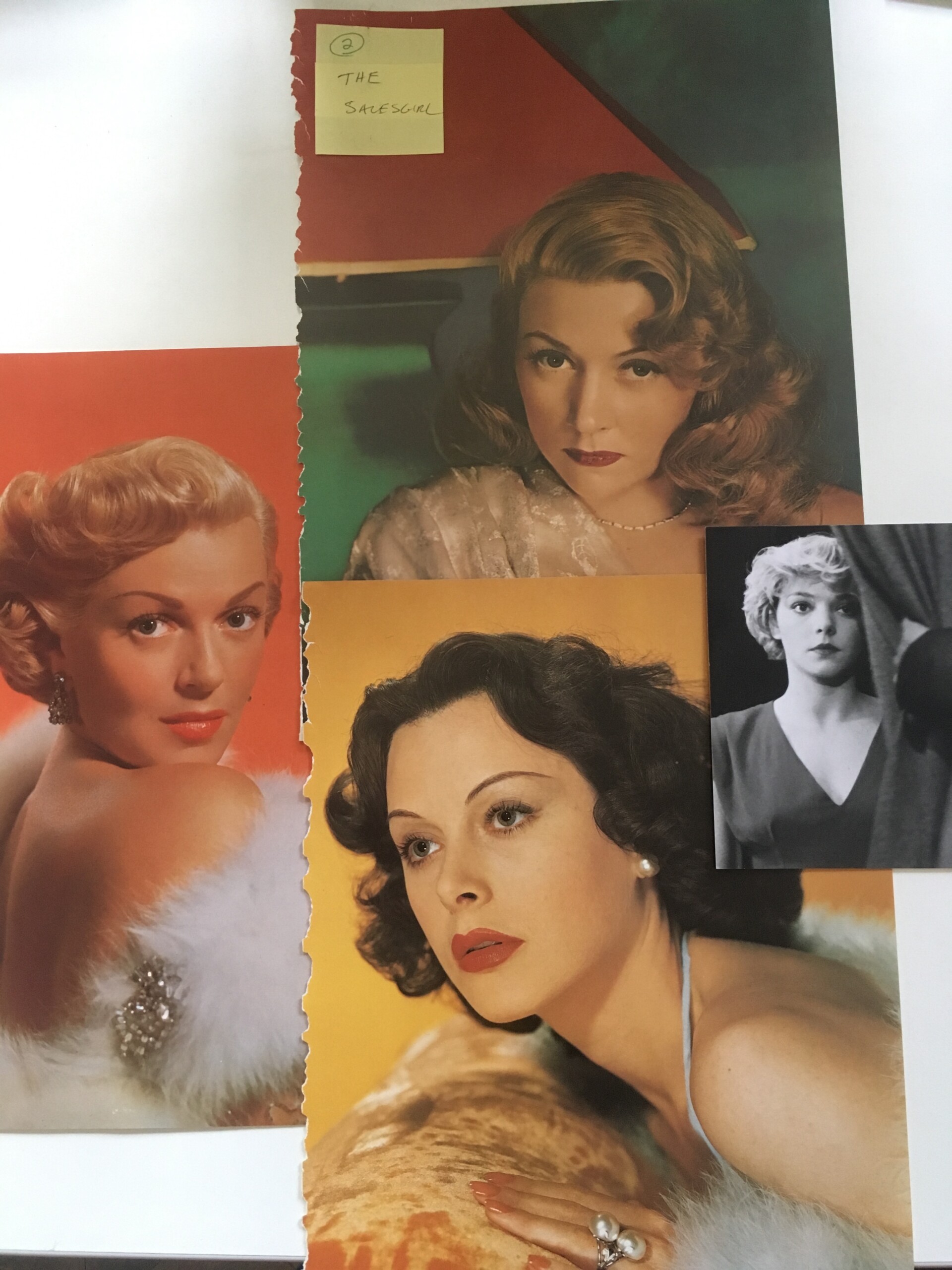
Photos © The archives of Chantal Akerman and Paradise Films
Synopsis
A musical.
About love and commerce.
Burlesque, touching, frenetic.
The location itself is the point of departure.
For everything.
A shopping mall in a European City. More precisely, the Galerie de la Toison d’Or.
A space which makes everyone in it both a spectator and an actor despite himself the ideal setting for a musical. Everything is performance.
Show business.
The characters move through the mall with heroic grandeur. Their gestures are balletic.
The corridors, displays windows, fitting rooms appear each in turn like little stages with backstage and wings.
Long wide corridors paved with marble, the constant hum of the escalators, and an airconditioned heat-controlled atmosphere beyond seasons, time and History. But not far...
A stream of glass framed luxury boutiques with riveting displays. Behind windows, the occasional glimpses of perfectly made-up faces, now and then a look is held, usually a woman’s.
Women who find themselves there not always by choice. Often they are on display just as much as the goods they sell; transfigured by the same glamourous pools of light. Like actresses, but without the pleasure of the stage, like women who sell their bodies, whereas theirs are only a means to a sale.
And yet, they sometimes seem like the last of the Hollywood stars in their spotlights, so near but so unattainable, only separated from their audience by a glass door which remains always open.
*
Eli, a foreigner, an American, is wandering through these corridors at opening time. He lingers, too long, before the displays... he studies the shop girls’ faces too closely.
He leads us to Aurore, whose lover has gone off across the ocean to make his fortune... then to Mado, the young hairdresser whose unrequited love for Robert preoccupies her... Robert, the sexy young salesman who lusts after Lili, wants to steal her away from Mr. Jean, the rumoured gangster and power figure.
Eventually, Eli is brought face to face with Jeanne, the woman he’s never succeeded in forgetting since their war-time encounter, who he never expected to find there married and installed behind her shop counter. Jeanne who nearly takes the plunge. Will she throw herself into a new life with him?
Jeanne brings us closer to Mr. Jean – madly in love with Lili, whose secret liaison with Robert has its role in Robert’s parents’ aims on her own boutique. What an ideal addition to their neighbouring shop... more selling space... Ah, but...
*
And so begins our musical story which unfolds in three days, in two seasons.
A musical whose characters speak quickly, move quickly and without pause, motivated by desire, regret, passion and greed, who pass each other without seeing, see each other without reaching, or lose each other (we never lose them) only to find each other in the end.
Where, as the film unfolds, the intrigues draw us in tightly, throwing us from one emotional tangle to another.
A curious machine with its own crazy workings... which at last, suddenly, goes still in the final image where, for the first time, we see in the last rays of sunlight – the “outside world”, the boulevard onto which the mall opens; dusk, cars, tramways going past... the other life.
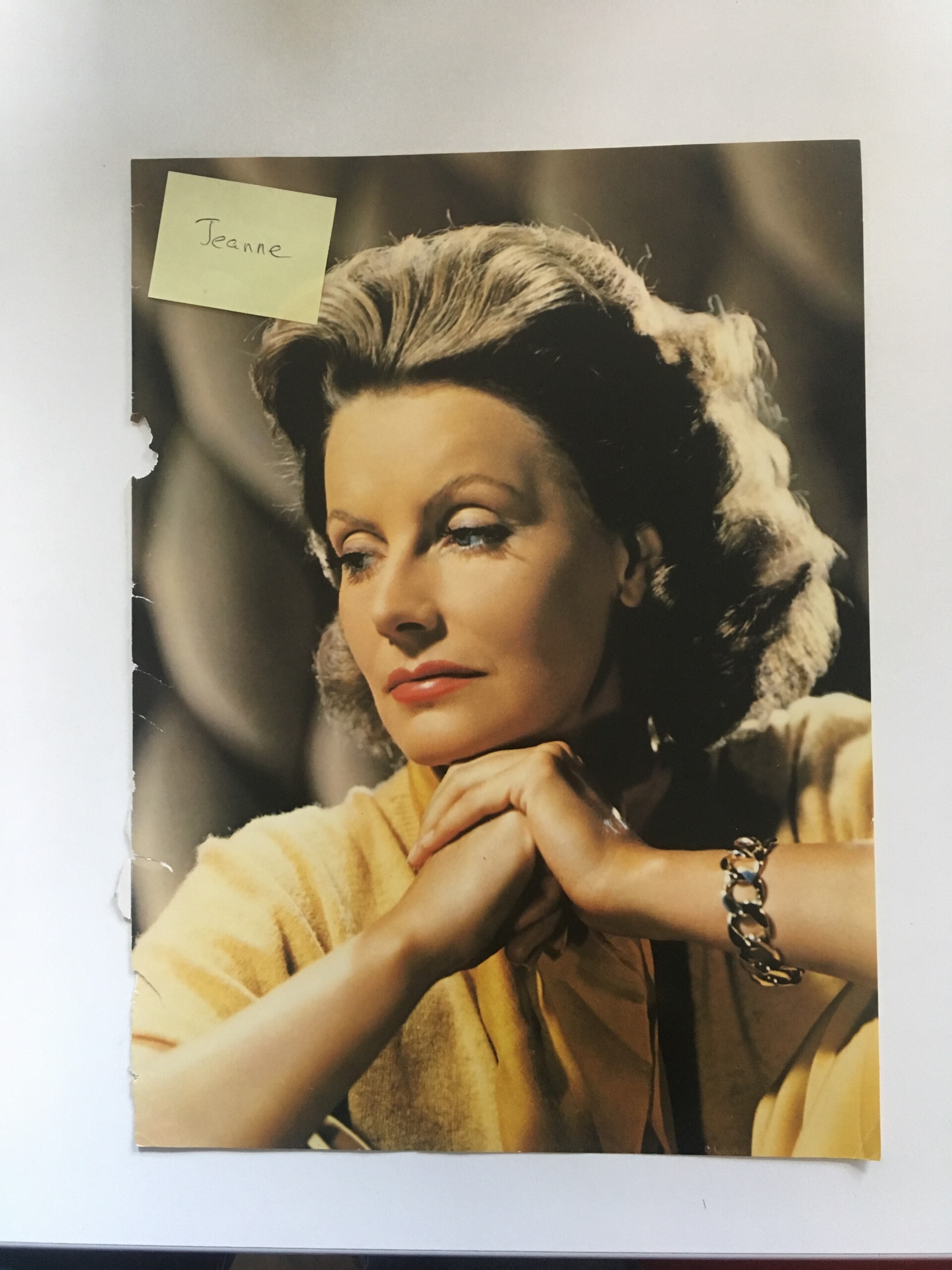
Photos © The archives of Chantal Akerman and Paradise Films
The Characters #1
Translated by Gerard-Jan Claes
Jeanne Schwartz
Fifty-something, beautiful, lively, secretive.
Dreams never fulfilled. Regrets, no doubt. Like Léautaud, she could say: “I regret everything” – but without the bitterness or sourness.
She was able to draw a kind of philosophy from her painful experiences and sentimental disappointments.
Tender and constant cheerfulness. Of Polish Jewish origin, she was deported at the age of sixteen (you can still see her registration number tattooed on her forearm) but she never talks about it. Nor does she talk about the sham marriage she entered into after the war, which enabled her to acquire French nationality. Now remarried to David Schwartz, a small Brussels industrialist, she is one of the oldest shopkeepers in the gallery...
A good mother, a faithful and devoted wife, apparently without any problems, her cheerfulness and gentleness made her the confidante of many of the gallery’s shopkeepers, as well as of many of her customers. But she herself confides in no-one.
David Schwartz
Sixty years old.
Jeanne’s husband. Runs a small glove-making workshop outside the gallery, which is floundering. A good man – a little clumsy, he has always had only one aim in life: to make money and, despite having deployed prodigious energy to this end, has never succeeded, has even lost what little he had and is now riddled with debt. But he never gets discouraged, is always ready to start again from scratch, to “innovate,” gargling in speeches in which he tries to explain the perennial situation of small businesses, proposing infallible remedies, declaring at each new failure that he has finally “found the solution,” always ready to make new mistakes...
Jeanne listens to him with a distracted ear, but remains firmly attached to him: he is a fundamentally good man, and she knows it. The Schwartzes have two children, two daughters who are now grown up. One is the manager of a supermarket in Namur, the other “lives her life” in Paris.
Serge Fillmann
Fifty-five years old.
French national. Engineer. The metal construction company he worked for has just filed for bankruptcy. So he’s unemployed, but he’s received a hefty allowance and, paradoxically, he’s looking on the bright side. He has no dependents, no wife and no children; for him, this lay-off is like a holiday. Until now, love had played little part in his life, which was entirely devoted to work.
A few passing liaisons, that’s all. And because of this sudden leisure, he’s back to being an adolescent: all women attract him; he can’t meet one without falling in love immediately. Until he finds Jeanne... He had made a deal with Jeanne in Paris in 1948, a sham marriage, to give her French nationality. They divorced and he hasn’t seen her since. But deep down, he has never stopped dreaming about her. That’s why he never married, he realises now.
He is one of those men who (to quote Léautaud again) “would rather dream that they are making love to a woman they love than make love to a woman they don’t love.”
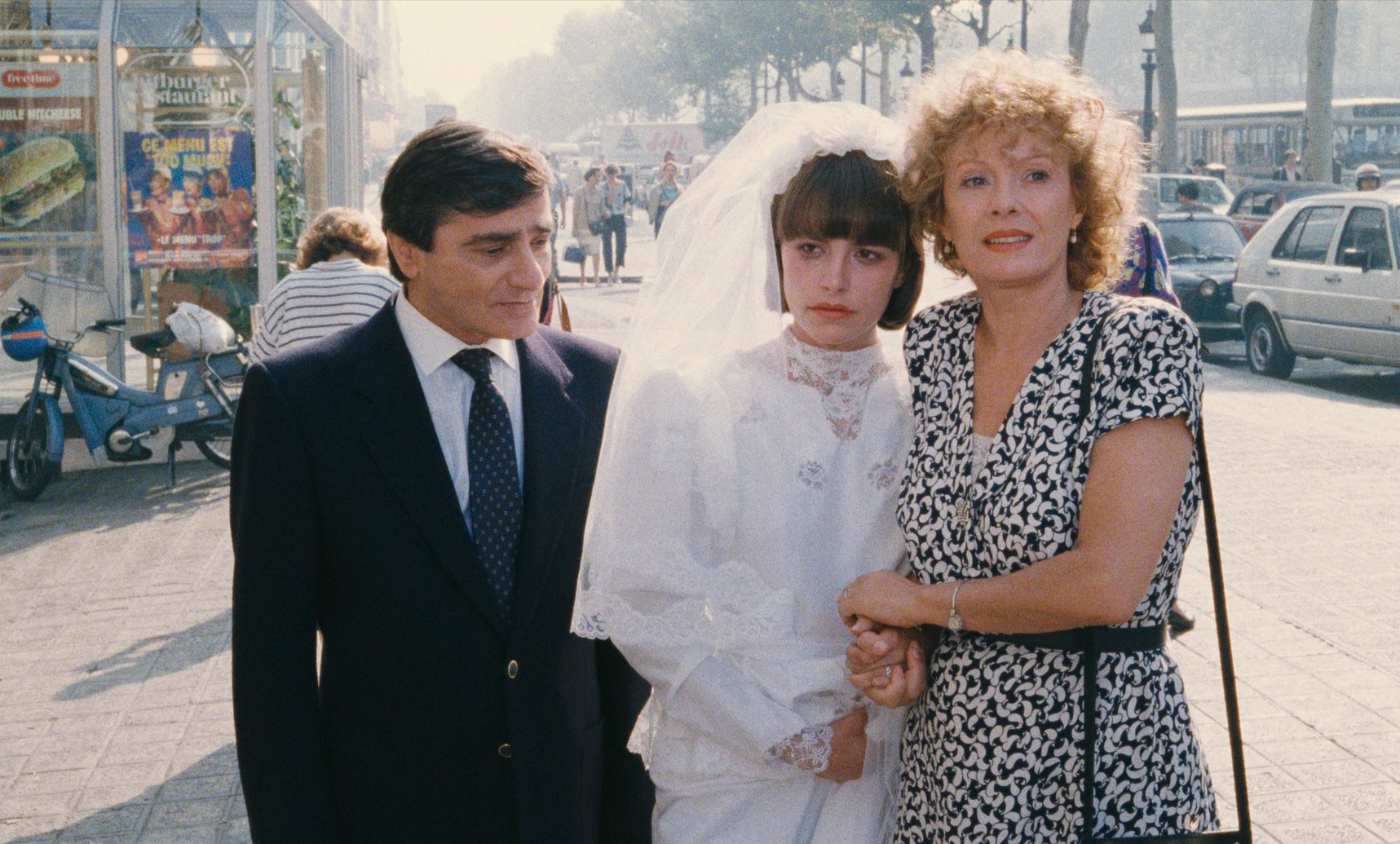
Aurore Devigne
Thirty-two years old.
In terms of both the location of her shop – a tiny cafeteria – and her temperament, she is the complete opposite of Jeanne, who is nonetheless her best friend. While Jeanne is discreet and reserved, Aurore is expansive and expresses her every feeling. Her cafeteria, like Jeanne’s shop, is a meeting place for broken hearts. But what is required of her is not, as it is of Jeanne, understanding and compassion, but lessons in optimism. (People are perhaps more sincere with Jeanne and more euphoric with her). Aurore lives alone with her fifteen-year-old son Joël. His father unknown, this rather shy boy intimidates her. In his presence, she, always so lively, becomes dull. It’s true that she’s no stranger to contradictions. Contradicting herself from one quarter of a second to the next is an essential trait of her character. She smokes all the time, drinks all the time and talks all the time about quitting, but also says it’s stupid to stop.
She believes in astrology, talks seriously about love, makes pseudo-philosophical speeches and explains (or tries to explain) every step she takes in life.
She has a lover, “the love of her life,” who has gone to make his fortune in Quebec: he writes her enthusiastic letters from Montreal, in which economic news is mixed with impassioned declarations. She memorizes his letters and recites passages to her friends and clients. Aurore and Jeanne are the two poles of a sentimental space, just as their shops are located at opposite ends of the gallery.
Mado Morin
Twenty-one years old. Number one in the hairdressing salon. From a working-class family, the business environment in which she finds herself makes her feel tremendous prestige - like nobility does to Monsieur Jourdain.
She adores Robert, attributing to him all sorts of qualities (beauty, distinction, elegance, education, etc.) that he lacks.
Like the young shampoo girls, her friends, she reads a lot of sentimental comics and photo-novels: her outlook on life is totally influenced by them.
Joël Devigne
Fifteen years old.
Aurore’s son. Pupil at the nearby athenaeum. A pretty, shy and awkward boy; his shoelaces are always untied, he stumbles every twenty steps and doesn’t wear “modern” clothes.
When he wants to help his mother in the cafeteria, he causes disasters (drops sandwiches on the floor, pours coffee next to the cups, spills tomato salad on customers' laps).
He always has his “head in the clouds.”
He’s only really interested in things on the fringes (religion, the life of the soul after death, etc.).
The young shampoo girls from the hairdresser’s chase after him. He sees nothing, doesn’t notice their manoeuvres.
If he feels any passion for love, it’s only for his mother, who more or less assumes it, hence her embarrassment and borrowed attitude when she’s in the presence of her son.
Liliane Branque (known as Lili)
About twenty-five years old.
Attractive, beautiful, whimsical, with flashes of vulgarity that are signs of too rich a pedigree. Bored to tears in her shop.
As they say, a “free woman,” she is cared for but likes to be elsewhere...
Was always mistaken in her love affairs...
Her beauty and sometimes haughty air frightened some men, but attracted others.
Like Monsieur Jean, the shady businessman who’s crazy about her and who keeps her.
He loves her too much, and she’s taking him for a ride... Maybe it's because she suffers from being unloved.
The Simon family
Together with their son Robert, Mr and Mrs Simon run one of the gallery’s most significant clothing shops. The shop is located in the central rotunda. It neighbours Lili’s smaller shop, which they would like to take over, but the romance between their son Robert and Lili is more of a hindrance than a help: Lili is a “bad girl,” they don’t want her in their family, she has no talent for business, while little Mado, the first hairdresser at Sylvain’s, the salon opposite their shop, would make a perfect daughter-in-law...
Finally, they treat Robert as if he were still twelve years old. He rebels feebly. His intrigue with Lili is his own way of rebelling. He is one of the many things his parents argue about, though there are many other issues.
The atmosphere in the Simon household is always stormy. They only form a united, smiling block in the presence of a customer.
Jean Timmermans (Monsieur Jean)
He’s apparently a tough guy, a “strong man.”
He lectures Joël, who says he doesn’t like sport.
Tall and muscular, he gives off an impression of physical power – but in certain situations he can be clumsy and awkward; he knows it and he suffers for it.
In business, he’s a champion. He specialises in importing and exporting damaged goods and useless gadgets from South-East Asia.
In addition to this, he’s said to be involved in less legal trafficking (soft drugs, counterfeit money, adulterated alcohol, etc.) But so far he seems to be keeping within the law. A Catholic, married and a good father, he only cheats on his wife with professionals. But in front of Lili, he’s a different man, he’s decomposing, he’s nothing more than a poor, love-struck being, almost touchingly clumsy. He’s mocked, abused and bullied, and he cries and begs, ready to pay again and again and again, without ever getting anything in return.
The hairdressing salon
Sylvain and Chantal Labarre run the hairdressing salon opposite Simon’s shop. They reign as absolute sovereigns over the small world of customers and the troop of young hairdressers, hierarchically organised from haircut to shampoo (to the sound of the Viennese waltz that Sylvain, a lover of operettas, regales his customers with).
The young apprentices form a chorus, whispering and gossiping constantly in low voices, consumed with curiosity, gossiping about everything, bursting into sudden laughter, always on the lookout for the slightest incident, the slightest conflict, and ready, like the chorus in ancient tragedy, to sides with one or the other. Some come from working-class urban backgrounds, others from the countryside; some have acquired a certain veneer, others retain the simplicity of their origins. For all of them, the slightest personal incident, a stocking that runs, a stain on a jumper, takes on the proportions of a huge catastrophe.
A strike, a change of ministry, an armed conflict, an earthquake that kills thousands of people, all seem insignificant compared to the little problems of their daily lives.
In their dealings with the hairdressers, the customers have both a kind of complacent familiarity and a humble, anxious attitude of enquiry and worried questioning: the success (or failure) of a haircut or styling can determine, among other things, their morale for a whole week, their success or failure in business or in love, and their self-confidence.
As for Sylvain and Chantal, in their language, manners and lifestyle, they have come to resemble their bourgeois clients – with the occasional crack in the veneer...
The “fratelli Rosetti” (Franco and Massimo)
Two twins from the suburbs of Milan. Their business is the only one in the gallery (along with the cafeteria and hairdressing salon) that runs smoothly. But it’s as much their personal charm as the excellent cooking of their mother (confined to her stoves) that ensures the reputation of their restaurant, regularly frequented by a legion of older ladies who, sipping their sambucca and watching them gracefully stroll between the tables, may be dreaming of impossible Mediterranean love affairs...
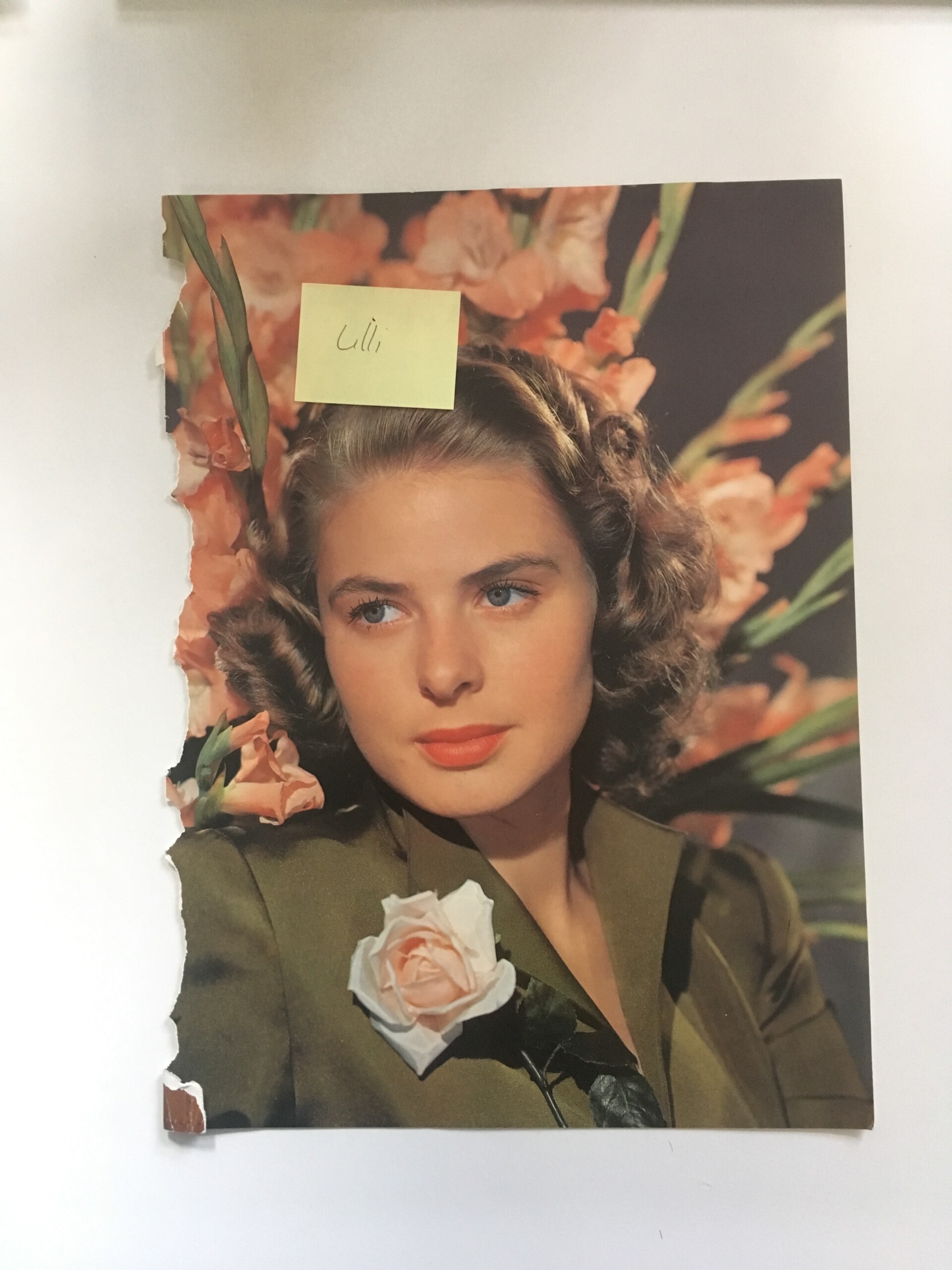
Photos © The archives of Chantal Akerman and Paradise Films
The Characters #2
Chantal
I’m head of the Toison d’Or hairdressing salon.
I feel good in it. It’s hot and humid, and that’s just what I like.
Mr Sylvain
I’m the boss.
I also feel good in the salon because I love the ladies and especially Chantal.
She’s mine.
Shampoo Girls
We’re the shampoo girls and we laugh about everything and everyone. You’ve got to laugh. You’ve got to look the bright side.
We’ve got our hands in lather all day long. It’s real soft.
And you know, things happen here in the salon. It never stops.
Chantal is a real example for us. She always keeps cool – and what glamour.
Oh, and Mr Sylvain a real Adonis, so good looking and such class!
And you know the customers tell us all their secrets, it’s so exciting. And then there’s Mado of course. That one, she ruins everything; with the martyred expression. Love, love, love.
Well love comes and it goes. That’s life. After all, it’s not so terrible.
Action is the thing that counts.
The Flower Girl
I sell flowers.
I go everywhere and I know about everything.
I can’t keep a thing to myself, and my big mouth is a cause for catastrophe.
The Four Boys
We don’t like work so we don’t work.
Inflation needs us.
So does the mall. We hang out there and take part in everything.
We sing!
We make fun of everything; we seem hard but we’ve got hearts.
The String Quartet and the Woman Singer
We’re here!
The Salesgirls
We’re the salesgirls and we wait for the customers.
You can see us through the windows, or standing in our boutique doorways.
Our main job is smiling.
We smile so much it hurts.
But such a lot goes on here at the mall, we always have enough to talk and think about.
The Office Workers
In the morning we’re down in the dumps.
In the evening we’re ready for fun.
Many of us will be out of work soon.
And we’ll spend our time in the mall, hanging around the snack bar where Aurore’s smile lights everything up... or in the salon where’s it so hot and humid.
The Boyfriends
We’re the boyfriends.
Every evening we come to take our girls away from this place where they're going a little crazy.
We all turn up together as if on cue.
Saturday, we spend the day hanging out in the mall, shooting bull, in the walkways or at Aurore’s.
Sometimes we sneak past our girlfriend’s shop for a quick look.
Sometimes we end up with another guy’s girl. It can happen.
Pascale
I work in the Toison d’Or hairdressing salon.
I’m being promoted soon to top stylist.
I’m Mado’s best friend and I protect her from the others.
She’s so sensitive, she doesn’t know how to defend herself in this world.
I’m in love with the same man as her, but I’ve thought it all out.
I’m her best friend, so I won’t do a thing to get Robert.
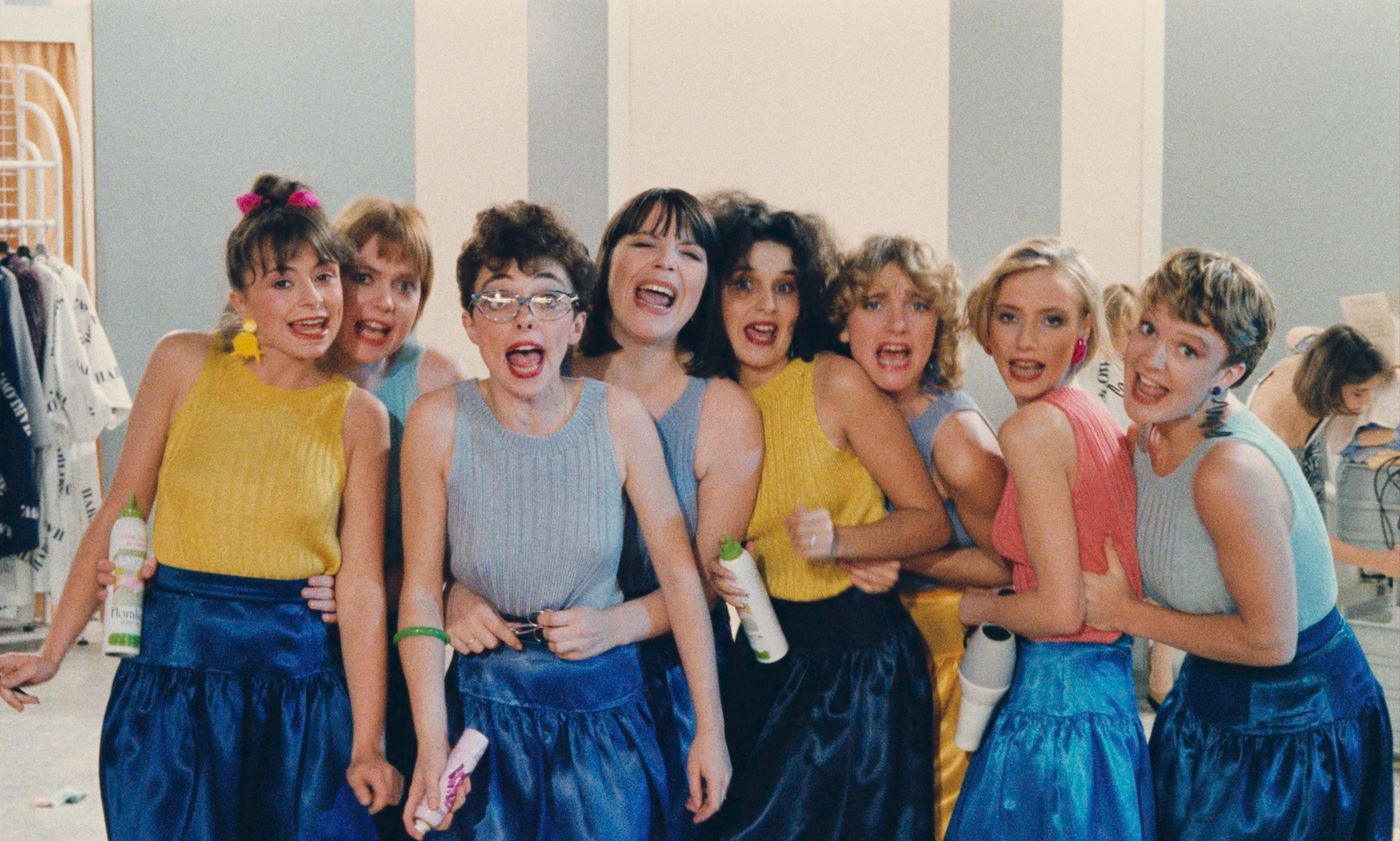
All images are republished with courtesy of the Chantal Akerman Foundation.
The archive material from Golden Eighties, along with many other materials related to other works by Chantal Akerman, is currently on display at the Chantal Akerman: Travelling exhibition at Bozar.
From tomorrow onwards, you can discover Chantal Akerman's Golden Eighties on the big screen in Belgium, as part of the ‘Avila, present!’ screening series.

